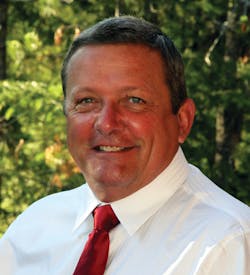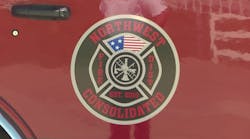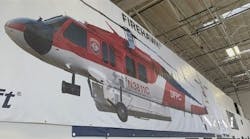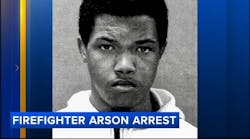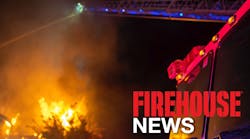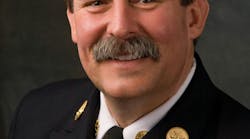For the better part of the seven years, I have been looking at the importance of higher education in the fire service. I’ve done this through numerous articles in Firehouse® Magazine that have provided rich anecdotal evidence that indicates some fire departments greatly value a college degree, while others do not. Many dedicated investigators have taken a statistical approach and studied higher education in their fire departments or in their states.
A series of conversations with fire service leaders, however, has led me down the empirical path to examine the national question: What is the relative value of a college degree in officer promotion? This is the central question student investigators and I are looking at this spring as part of an Eastern Kentucky University (EKU) Program of Distinction-funded research grant.
“The College of Justice and Safety is the only college in the state designated as a Program of Distinction. As such, we are awarded approximately $3 million per year out of the university’s base state budget to enhance the education of the college’s students,” said Dr. Allen Ault, dean of EKU’s College of Justice & Safety. “The money has been used as seed money to initiate many innovative programs and grants,” including Kentucky job creation, a distance learning initiative and more classrooms to meet the needs of increasing enrollment.
With grant funding secured and encouragement from Ed Kaplan – soon to retire as section chief for Education, Training and Partnerships at the National Fire Academy (NFA), a pivotal position that has brought us the Fire and Emergency Services Higher Education (FESHE) program and who has served as vital inspiration to fire service courses and curricula – I sought further perspective. As a result, I was a participant in a memorable conversation that spread across the country from Atlantic to Pacific. Because these comments provide an excellent view of how we look at higher education in the fire service and why its examination is useful, they add valuable insight for practitioners and researchers alike. The additional participants are:
• Dr. Denis Onieal – He was appointed superintendent of the NFA in 1995. He started his career in the Jersey City, NJ, Fire Department, rising through all ranks and retiring as the acting chief of a uniformed force of 640. He spent his entire time “in the street” as a line firefighter and officer.
• Ronny J. Coleman – He began his fire career with the U.S. Forest Service and later became California’s State Fire Marshal, president of the International Association of Fire Chiefs (IAFC) and well-known author and consultant.
• Adam Thiel – He is a retired fire chief and a 23-year veteran of the fire and emergency services, including service as fire chief for the City of Alexandria, VA. Thiel also served as Virginia’s state fire director and is an active participant on several national-level boards, commissions, and workgroups.
• Jim Broman – His public fire service career spans more than 45 years including 33 years as a chief fire officer, most recently as fire chief of Lacey Fire District, in northeastern Thurston County, WA. He now is the principal in Hook ‘N Ladder Consulting, LLC, and offers fire and emergency services management consulting services across the U.S.
subhead
Kaplan: I’m sure all of you have read Paul Snodgrass’s informative columns on higher education in Firehouse®. He, more than anyone, has told the FESHE story to the masses and will do so for the foreseeable future. His passion for higher education rivals ours. (He plans) to study the elusive question of the value of education to a fire department and the people it serves.
I describe this as the elusive Holy Grail of our world. Over the past 20 years or so, others have tried and dropped it or found inconclusive evidence. We, nonetheless, discussed a number of approaches and none seemed feasible to me. I doubt that measurement and correlation is possible, but that’s why I suggested he ask four of the best minds I know on the subject. Aside from their passions, all of them have a national profile and written about or led on higher education for the fire service.
Onieal: Ah…The elusive “value of education debate…” The President recently proffered the thought that colleges should be evaluated on the salaries of their graduates. If the scope is narrow enough, the limitations well defined and using previously developed measurement tools, a comparison between/among departments might be possible.
subhead
Snodgrass: Talking with colleagues today, I was reminded that the city managers and county administrators who hire fire chiefs might be the other target of this investigation: they set the groundwork for relevance of higher education in the fire service
Thiel: It’s really at least two different topics: one, what is the value of higher education to a fire department, presumably assessed by the fire chief, but possibly by others in the chain of command; and two, what is the value of higher education to a prospective fire chief’s appointing authority, generally a mayor, manager, board chair, etc.
Kaplan: Perhaps this study should be two-pronged: an examination of the hiring practices of the fire chief and his/her city manager or mayor. This could reveal some important differences in attitudes towards higher education within jurisdictions and their effects on performance. On the one hand, a city manager with just a high school diploma might be less willing to support a fire chief who wants to require some level of higher education for promotions. Conversely, a mayor who, like most of his/her department heads, has an MPA (master of public administration degree) can create pressure on a fire chief to pursue the same (not an uncommon motivation, by the way). Testing the hypothesis that higher education improves the performance of a fire department and the public it serves, elusive as it may be, might be best assessed by looking at who’s driving the push for education, the city leader or the fire chief. Taking it one step further, if both are in sync one way or the other, are there measurable effects on fire department performance?
Broman: At first look, this type of research makes sense and I support/encourage it. When I come under the influence of pragmatism, I ask myself, “Who is the audience here?” or “Of what benefit will this be to the cause of fire service professional development?” I also ask, “What is the result if the research is inconclusive?” I hasten to add that you should not misunderstand; I shall always be a strong proponent of higher education for the fire service. I have encountered some of the most assertive “naysayers” and have concluded that they tend to make the case for higher education by displaying their narrowness or ignorance.
The process of higher education requires at least two major resource investments; i.e., time and money. In my mind, the practical question before both fire service members (potential leaders) and/or hiring authorities is whether the results are worth the investments. By my observations, business (private sector) has consistently opted for higher education (even to the extent of stipulating to the quality of the education) because there is a clear, measurable return on the investment in terms of business outcomes; e.g., profitability and growth.
Again by my observations – including recent experiences in a consulting role – is that the customer (the public) is interested in LESS service (lower cost) and has NO interest in rewarding high performance management/leadership with competitive compensation. So, if the research shows that higher education produces better leadership, more effective management and better outcomes, how does that affect the contemporary public thought/attitudes/decisions?
subhead
Snodgrass: From my experience, I'd have to agree with you in terms of the public wanting to pay less for more. Taxes, subsidies, assessments and user fees, which I believe are of the same ilk, are not popular. But the public expects fire service professionals to solve all their problems – from a momentary bout with gravity to providing advanced life support (ALS) in an attempt to save a loved one who is clinically dead, to making sure the nearby chemical plant is up to code and when it does have an emergency, that residents are protected. Not to mention the expectation that the fire department will bring the right resources, command structure and competent crews to extinguish a fire that threatens the commercial lifeblood of a community.
We have talked a lot about how valuable education is in the fire service, but examining its relative worth should provide useful data. I’d like to examine the relative value of higher education emanating from the chief's office and compare it to what's being offered from the county manager's dais. Of course, the level of support might be measured in money or promotional prospects, higher education has some position in all jurisdictions...we’re just not sure to what extent.
“Will the public be interested in supporting higher education?” is another question in my mind. Studying the public’s perception of the fire service based on its level of understanding of what we do would be great too.
I agree that the central question is to what level of support chiefs and their bosses want to provide higher education. The study (thus far) will not look at pay for performance in the upper strata of fire service leadership, merely at the potential for better leadership via education. And as you point out, the public sector has funded higher education in a belief that it makes better managers and executives, so some body of evidence exists to support this linkage.
Coleman: From my perspective, there are three really critical elements in the discussion of how higher education fits into our world. The first of these is the idea that we have to even be educated in the first place. Where did that start? In my files, I have documents that go all the way back to the 1920s that declare that firefighting was a trade occupation. Individuals such as Ralph Scott and the early members of IFSTA (International Fire Service Training Association) supported the idea that firefighting was a manual skill. If you fast forward to the days of the first Wingspread Conference in 1960, someone suggested that we need to be “educated” instead of just being trained. We can trace the development of most of the community college programs from that date.
My second point is based on something I have heard Dr. Onieal state many times over and over again, and that is we are not truly a profession until we can tell people what it takes to be there and we can pull their license to perform. That is very true for a physician, an attorney, even an engineer, but it does not exist for a fire chief.
Simply asking the fire service what it needs to become more professional is self-serving. In my opinion, the only people who can truly assess our level of professionalism are those that are hiring us. They have a different perspective on everything. Years ago, I did a survey of all the parties who had been selected as a fire chief in the previous year. I sent them a task sheet for them to prioritize their informational and occupational needs and to place them into a priority list. I sent the same list to the city managers. Without belaboring all of the other points that this survey created, there was one main observation. City managers ranked some tasks to be extremely high and others to be relatively low. The fire service survey came back with the same phenomena, but the two lists were reversed. In other words, what fire chiefs thought was important, was not important to city managers and what city managers thought was important, the fire chiefs placed very low.
The last comment I would make is that raising the bar on the education of the future fire chief is really being driven more by our internal desire to look and sound like a professional much more than it is being driven by a demand from the public that we demonstrate these skill sets. I don’t even pretend to have an answer to this phenomenon anymore other than to suggest that if we want to be perceived as professionals and to have an education that is equivalent to our peers, we are going to have to raise the bar for everybody and hold the bar steady for an entire generation to complete it.
In summary, this is a problem of monumental proportion that is not going to be brought to a head by a series of email exchanges. The more we talk about it, the more I think we define what our true needs are going to be in the future. Just looking back on the past, I feel that we have been seeking something, but lack a consensus as to what that something really is. Do we really need a highly educated person to lay fire hose? Can we really afford to have someone managing a multimillion-dollar budget who doesn’t understand finance? Every time I look at the model of who we are, I am reminded of the military model where the infantryman is at the bottom and the general is at the top. Very few generals got there strictly through tenure and experience. Perhaps this dialogue will continue to focus on the need to clearly identify what being an officer is all about.
Of course, no single study will bring these crucial points into sharp focus. Yet this research may provide a compass for further investigation into what we need to become better officers and how we develop fire chiefs.
Results of the study, “Relevance of Higher Education in U.S. Fire Department Officer Promotion,” will be available in the fall.
